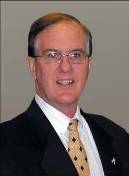Executive Director's View
 Print this article | Send to Colleague Print this article | Send to Colleague
What About the Future?
Dr. Bob Hassmiller, CAE
Executive Director

Most professionals in the higher education field are permitted to speculate on the future at least once before retirement. I AM retiring, but I will be brief, and rely on the fact that almost no one will check this in ten years.
1. When I entered the higher education profession over 40 years ago, the really BIG idea was "open access." A nation that had created the highest quality post-secondary institutions in the world took on the task of making education available to everyone. It was a monumental task that vitally involved a transition from "Junior" Colleges to Community Colleges. And it was successful. But, success at a single task often creates problems in its attainment. The meaningfulness of a two- or four-year degree sometimes was diminished. Open access did not always translate to successful achievements nor degree attainment. Open access may have resulted in some waste and certainly was costly. But despite students failing in sometimes breathtaking numbers, those who could benefit from an education, and who had often been denied their success DID succeed. The next BIG idea will involve the measurement of quality outcomes for post-secondary education. Students/learners will be required to be successful before moving on to higher learning tasks. That success will involve education taken in often smaller bites. Quality outcomes will at times conflict with open access as there will be "screening" of those most likely to fail. How the two "Big Ideas" merge will be a significant process during the next 40 years. But certainly community colleges will have a vital role at the spear tip of this movement. We will have to be leading this issue.
2. Related to this idea will be a reform of financial aid. I’ve publically stated that the current system of loans has been broken for about 30 years. Future systems should likely go directly to students, be uniform independent of the institution attended, AND be closely tied to short-term success. This will create a funding revolution in tuition similar to the current decline in state funding. For community colleges it will mean that we have to differentiate ourselves through successful outcomes just as we’ve differentiated ourselves on low cost and open access.
3. The open education options brought about through on-line learning will continue. I worked at a self-instructional segment of a community college in 1976. It has taken 35 years to begin to reach its potential. As students limit their physical attendance at institutions four year colleges will be heavily impacted, but so will community colleges. Where once community colleges were at the bleeding edge of on-line learning, we will need to reestablish our excellence and dominance.
4. I’ve previously predicted that new challenges for learning will require new professionals to meet those challenges. The good news is that retirements (like mine) will provide tremendous opportunities for new thought and new approaches. The bad news is that the institutional memory of what has made most institutions great will largely leave with those retiring. There will be a temporary "brain drain" that institutions will need to work hard to fill, and then improve upon.
Once again a specialization in community college specific management will be critical. To survive, community colleges will need to emphasize even more of their uniqueness and NOT be "small" four year college, in my opinion. Your education through programs like those that CCBO offers at its annual conference and through its Leadership Academy will be critical for your future.
Facing retirement from salaried employment I’ll repeat how fortunate I’ve been to have ten years of excellent CCBO Presidents. I’ve been VERY lucky to have an excellent year with Sandra Marek. In the midst of transition, she is wonderful. We are equally fortunate to have Ed DesPlas serve as President with my successor and Heather Brown. Association Management can often be difficult when you change "bosses" every year. But each year each of our CCBO Presidents have brought a professional dedication to higher education and their association that rose above any personal agenda.
And every volunteer President is only as good as their board, and those have been extraordinary too. We have just consistently received great talent and together we have accomplished good things.
For ten years I’ve had the best staff I’ve ever been privileged to lead. With CCBO we were very lucky to have a great manager in Cheryl Armstrong who led us in the early years. Cheryl was followed by a truly gifted professional in Heather Brown. Every day in some way Heather makes things better for both CCBO and NACAS. Between Heather and Cheryl we have worked hard to catch-up with your vision. You have a great manager and leader to work with you in Heather Brown.
CCBO has benefited from our NACAS connection and NACAS has certainly gained meaningful participation and perspective from CCBO. That has come from my excellent colleagues like Jeff Perdue, Abby Tammen, Marcia Oakley, Trace Gaskins, Pam Grove, Kelley Morrison, Caleb Welty, Jonathan Baynes and Kim Wilbur. They all provide CCBO a high level of service to our members and they will continue that in the future.
As I reflect on CCBO activities over the last 10 years, it’s easy to see we have had many successes and a few failures along the way. In my opinion every worthwhile leader fails at times. It’s what you do with both success and failure that marks your career. Our CCBO leaders helped choose a successful professional as my successor. If you give him/her the same support you gave me, CCBO will continue to meet the many new challenges that will come during the next decade as well.
Whether you are an institutional member or business partner – you do significant work. It’s often hard, but your work in your community college is always important to the overall mission of higher education. Your success is critical to our future.
Continue to feel positive about what you do, even when that’s difficult. Use your association! CCBO wants to help. But in turn, you must continue to participate as the leaders that CCBO needs to continue our success.
It has been my privilege to work with you to improve your profession. Know that I have, and will always continue to care about the work that you do.
I will leave you with my favorite quote by Teddy Roosevelt (please do interpret "man" to include everyone):
It is not the critic who counts; not the man who points out how the strong man stumbles, or where the doer of deeds could have done them better. The credit belongs to the man who is actually in the arena, whose face is marred by dust and sweat and blood; who strives valiantly; who errs, who comes short again and again, because there is no effort without error and shortcoming; but who does actually strive to do the deeds; who knows great enthusiasms, the great devotions; who spends himself in a worthy cause; who at the best knows in the end the triumph of high achievement, and who at the worst, if he fails, at least fails while daring greatly, so that his place shall never be with those cold and timid souls who neither know victory nor defeat.
I haven’t retired yet, and plan to see you ALL at the annual conference in Orlando. So agree or disagree to bob@ccbo.org.
Dr. Bob Hassmiller, CAE
Executive Director
Community College Business Officers
3 Boar's Head Lane, STE B
Charlottesville, VA 22903-4610
(434) 293-2825
(fax) 245-8453
bob@ccbo.org
www.ccbo.org |
|




